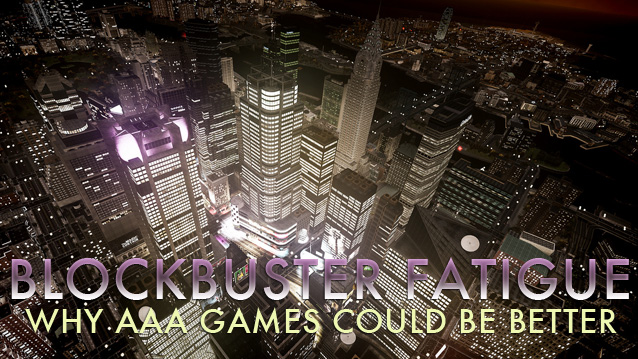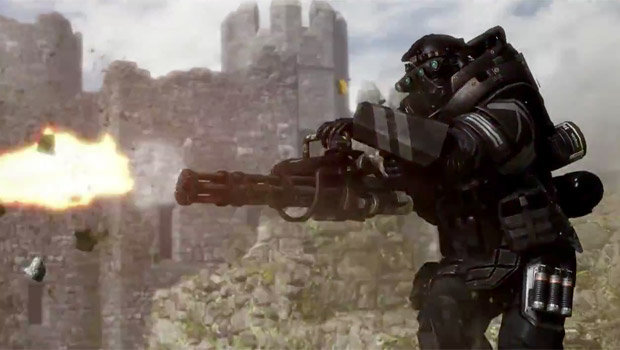

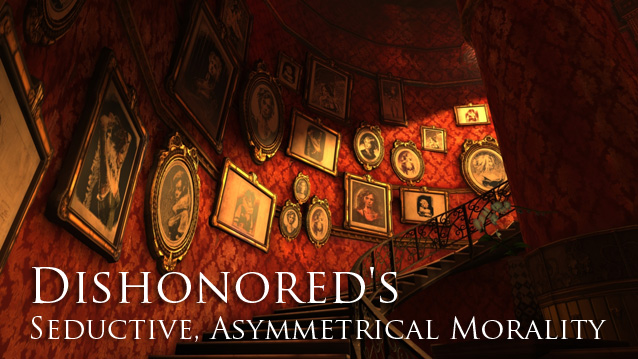
“Moral choice” as a game mechanic had largely stagnated before this year. What became popular, with Fallout and its successors, as a means to make your decisions matter over the course of the game, because a simplistic component of RPGs and many other games. Call it “the BioShock dilemma”: in that game, the supposed moral choice you're given is whether to kill and harvest the modified, creepy Little Sisters for their magical power, or save them and get less powerful. While initially portrayed as a choice between evil plus power or altruism plus weakness, the issue is confused by the fact that saving the Little Sisters gets you the same level of reward, just a tiny bit later. Thus there's no practical difference between good and evil in BioShock, it just alters some of the cosmetics—a bit of dialogue, and the ending of the game.
This is basically how most games have treated moral choice: as two sides of the same coin, two equal counterparts. If you go evil, maybe you fight a little bit more, but if you go good, you equivalent rewards for not fighting.
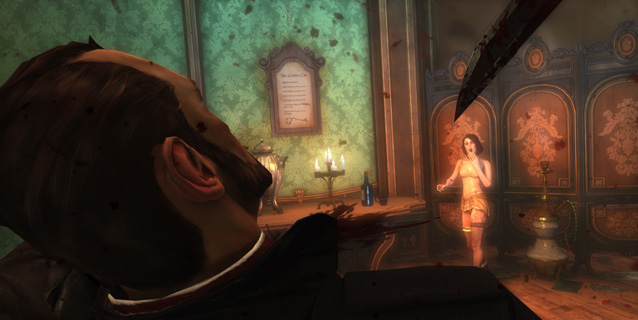
But good and evil aren't equivalent halves, nor are means-based ethics and ends-based-ethics, nor order and chaos, nor any other number of philosophical or theological divisions. Playing “bad” shouldn't just be a choice to grow a goatee and get different cutscenes, it should be seductive. You should want to take the amoral shortcuts with short-term rewards, even if they have long-term consequences. This exists in strategy games: if you play aggressively in Civilization, your neighbors will remember your belligerence and be less inclined to aid you in the future. But narrative-based games haven't done this well.
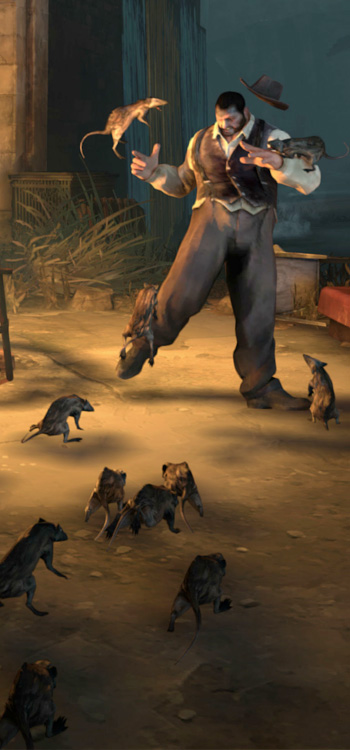
Well, they haven't until Dishonored.
As you play Dishonored, you have “Chaos” rating, which is lower if you avoid killing, and higher if you murder. Throughout the game, killing is rewarded in the short-term gameplay. From the beginning, knocking an enemy unconscious takes longer than killing him. Leaping from a ledge does no damage if you land on an enemy and kill him, but there's no non-lethal equivalent for a safe fall. A third of the magical powers, some of which are quite entertaining, are only useful for killing. Indeed, arguably the most useful power, “Shadow Kill,” instantly disintegrates a dead body, meaning you won't have to hide it in order to avoid guards.
But the more you kill, the worse the game goes. It's not just the ending cinematic, it's also how other characters act, how they treat you, how they treat each other. It's the city being in worse shape, with more plague-ridden rats, and more zombie-like plague victims. I'm not certain if Dishonored is harder in the end-game if you play high-chaos, but it's certainly uglier.
Yet because Dishonored's morality is unbalanced and different, it's also confusing. I've seen several people complain that, because they were trying to play the game as a good guy, the “cool powers” were “locked.” Moreover, because the negative effects of playing bad don't show up immediately, Dishonored goes out of its way to explain how chaos works. Some of it is in-game, with characters telling you what might happen, but it also explicitly states in its loading screens that high-chaos means a worse ending. This has proven controversial—it goes against the level of immersion that Dishonored seems to aim for overall, but it's also something that might confuse or disappoint players otherwise.
To be honest, I wasn't certain that Dishonored's asymmetrical morality system was workable in a story-based game. I'm still not sure it works well in Dishonored, but it works well enough that I can see more developers working with the idea in the future. Morality shouldn't just be cosmetic; it can also be a critical game mechanic.

